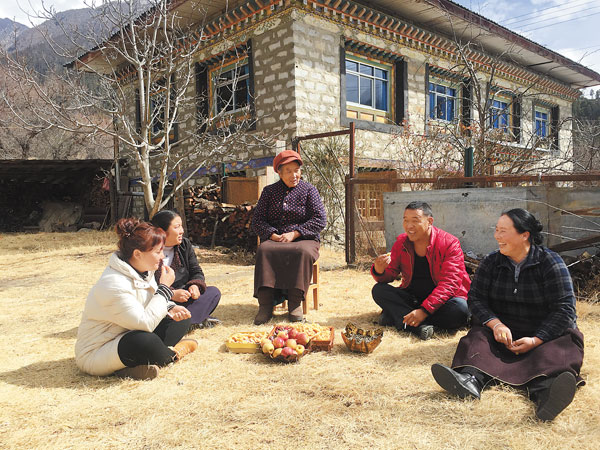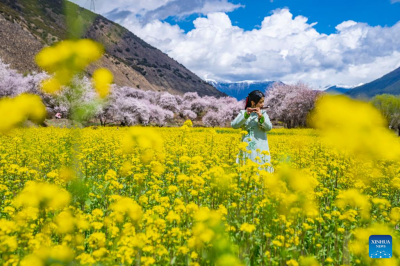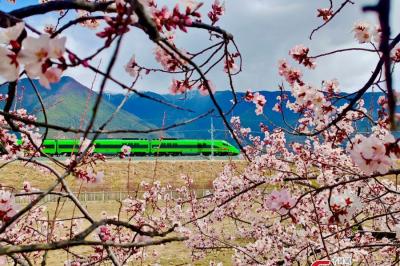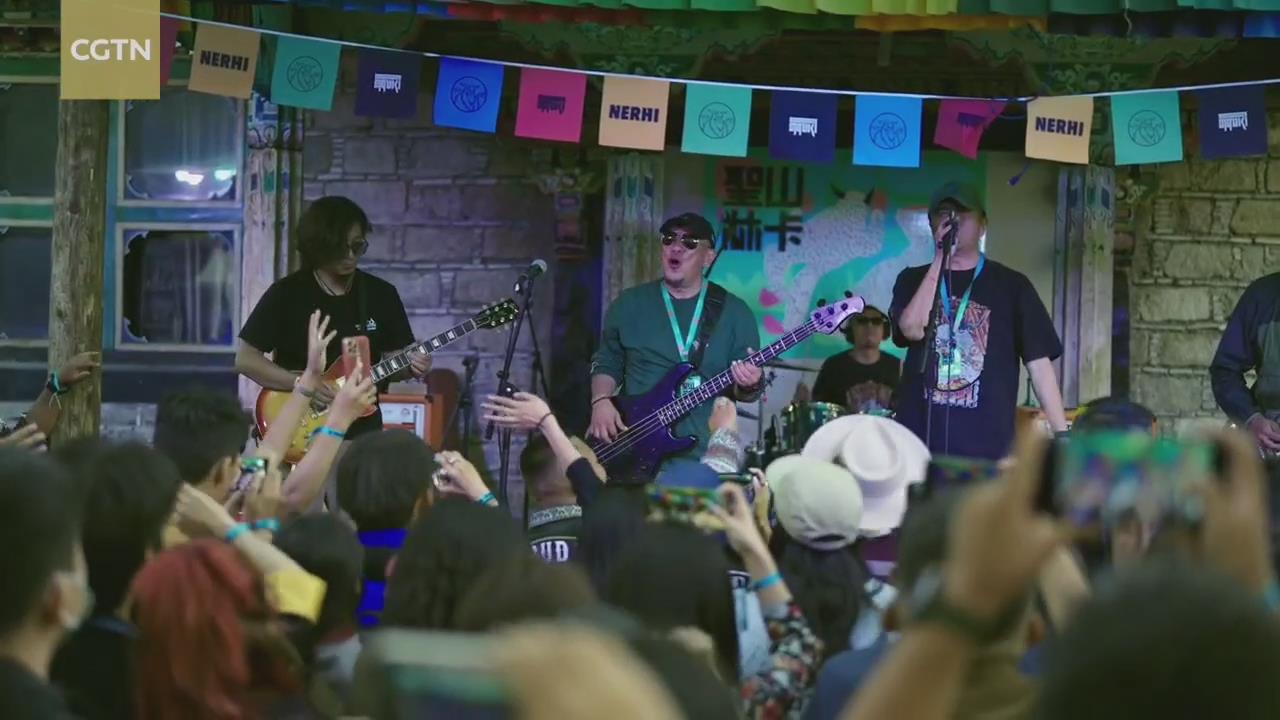| Background:
Drodro, female, is born in February 1950, and now is 69 years old. She lives in Genzhang Village of Genzhang Monba Ethnic Township in Nyingchi City's Bayi District. Before the 1959 democratic reform in Tibet, all four people in her family were serfs of Dorbu Manor, which was located along the Nyangchu River in Bayi District of Nyingchi City, with lower altitude, fertile land, and rich forest resources. She worked from dawn to dusk to do farm work, and herded cattle and sheep. Without enough food to eat and clothes to wear, she was often beaten.In 1959, the democratic reform movement was flourished on the plateau, and the feudal serfdom was completely abolished. After the democratic reform, the life of Drodro and her family has been getting better and better.
April 4, 2019 -- Drodro (3rd, R) is talking about her life experience to her family at the yard of her house. [China Tibet News/Zhang Meng, Wang Shan] April 4, 2019 -- At 10 o'clock on the morning of February 19, 2019, in the small courtyard of Drodro's home in Gengzhang Village, reporters and Drodro's sons and daughters sat around the old woman, drinking delicious buttered tea and listening to the old woman's personal experience. "As long as I can remember, my parents had worked in Dorbu Manor, and herded cattle and sheep,” Drodro said she spent her childhood in cold and hunger. "In those days, we didn't even have a proper house. We were all huddled together in a little hut made of stones and rotten wood and sticks. It leaked in the summer and snowed in the winter,” recalling the past, Drodro sighed, "at that time, all 4 people in my family didn't even have a complete dress, let alone a quilt.In winter, the whole family can only huddle together and shiver with cold. Besides coldness, starvation was daily experience and eating enough food was simply a extravagant hope. For several months of every year we had nothing to eat, and when we got very hungry we ate bark and drank snow water.” "At that time, the village was full of serfs. When we were ill, we used boys' urine to cure ourselves. If someone was seriously ill, we had to leave this person to the gods, for none of us could afford a doctor,"Drodro recalled. The education in old Tibet has been a pain in Drodro's heart. "Serfs had no right to receive any education. Our family had been illiterate for generations. Before the democratic reform, I didn't even know what a character was." In 1959, the democratic reform in Tibet reached her hometown. "At that time, it was whispered in private that Chairman Mao would abolish serfdom and distribute land, cattle and sheep to the people. Dorbbu (the owner of Dorbu Manor) was very angry when he heard that. We were not allowed to talk about it and people were sent to catch people who were involved in the discussion.” One day in March 1959, a PLA troop was stationed near the Dorbu Manor to build a road. "A couple of kids and I were curious and went to watch them. A PLA man saw that I had no shoes on and my feet were red and swollen with cold. He took me to their camp, washed my feet, applied some frostbite medicine and gave me a pair of shoes," Drodro said excitedly. "When we heard the news that serfdom had been abolished, our whole family were too excited to sleep all night," Drodro said with moist eyes, "at that time, everyone shouted 'Long live the communist party!' I will never forget this scene!" "After the democratic reform, life was getting better and better. In the second year, our family were able to eat our fill and wear warm clothes. When I was 12 years old, I took a literacy class for more than two years, and could basically understand the newspaper," Drodro said proudly, "in 1970, I was one of the few intellectuals in the village and was chosen as the women's director and accountant by the villagers.” Nowadays, the village Drodro lives in is clean and tidy. Cement roads and Tibetan-style buildings are built. Cars are seen everywhere and laughters are heard everywhere. The villagers' lives are even sweeter than honey. |
- Home
- News Tibet |Exclusive |China |World |Related News |Latest
- Documents White Papers |Others
- Photo Politics |Economy & Society |Culture & Religion |Human & Nature |Beautiful Tibet |Other Tibetan-Inhabited Area |Exchanges |Related
- Video News |Documentary |Micro-Video |Entertainment
- Art
- Tourism
- In Focus
- About Tibet







